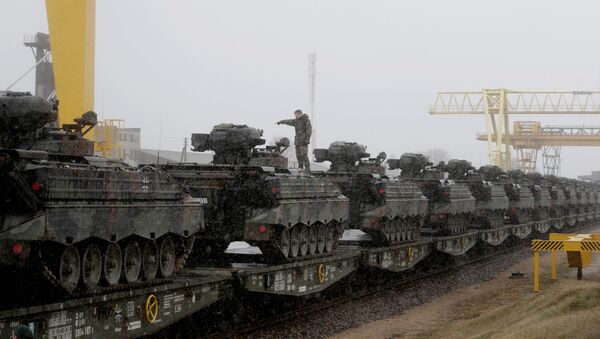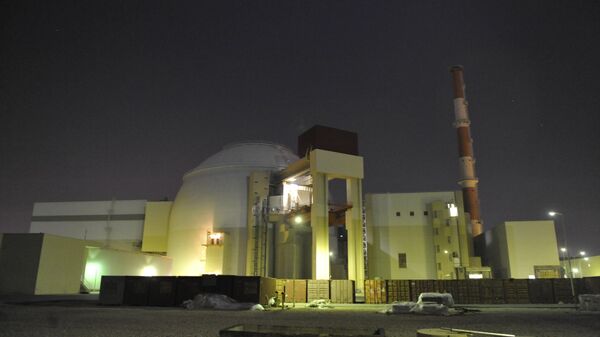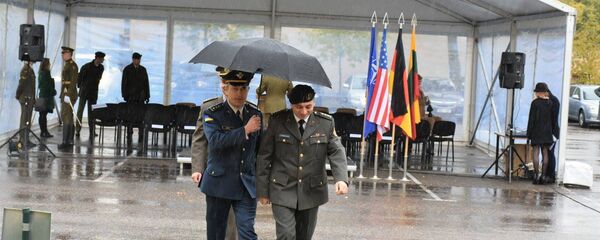President Trump's decision to pull the US out of the Iran nuclear deal has prompted waves of political discontent across the Atlantic, with French President Emmanuel Macron and German Chancellor Angela Merkel slamming the move and calling for efforts to increase the continent's sovereignty. Merkel has also gone beyond politics and economics, saying that in the security sphere too, Europe needs its own policy.
"It is no longer the case that the United States will simply just protect us," Merkel said last week in speech in Macron's honor in Aachen, Germany. "Rather, Europe needs to take its fate into its own hands. That's the task for the future," she said.
"I think this is the latest act of the drama taking place before our eyes, with its essence being the collapse of the strategic partnership between the United States and Germany," the academic explained. "This was a partnership which, until now, was built on the principle of the US providing a security umbrella to Western Europe and Germany."
Wielomski said he was familiar with many observers, particularly to the right of the political spectrum, who see this arrangement "as a kind of dependence or even a political and military 'colonization' of Germany by the United States."
"But I have always stood on the position that Germany reaped a huge advantage from this – namely that it did not have to spend its own money on arms and national defense," he added.

Today, the observer noted, when the strategic, political and economic interests of the US and the European Union, including Germany, are starting to diverge in a serious way, the idea of the reconstruction of a German army, and possibly even a European army which is independent of the United States, will be sure to take on new life.
"In practice, this will mean the weakening of the American position in Europe, US-German disputes, and the de-facto slow collapse of the North Atlantic Alliance," Wielomski said.
Chance for Russia
According to the academic, this "political emancipation of Europe" in the form of the strategic alliance between Germany and France also means the growing geopolitical significance of Russia in the world.
"It must be admitted that we are witnessing before our eyes the rise of a multipolar world. And American policy, which has been very harsh recently, is a desperate attempt to defend their position as the world's only superpower," Wielomski said. "As paradoxical as it may seem, all these attempts only weaken Washington, which is losing allies, and thus its position as leader."
As for the consequences of the US's Iran deal pullout, these too can serve Russia's benefit, if Moscow plays its cards right, according to the observer.
"I think that another opportunity has been created for Russia in the Middle East. Up to now, Iran had been conducting a dual policy, because 'liberal-minded Iranians', let's call them that, called for a rapprochement with the West, while the Iranian conservatives were skeptical. For this reason, Iran pursued a 'two-front policy,' attempting to civilize relations with the United States on the one hand, and on the other looking at other partners such as Russia and China, who called into question US global hegemony. President Trump's latest move – the breakup of the nuclear deal with Iran, also means the defeat of the liberal faction in Iran, which of course also means that Iran will now strengthen its cooperation with both Russia and China. This, in turn, will mean the strengthening of Russia in the Middle East."

The views and opinions expressed by Dr. Wielomski are those of the observer and do not necessarily reflect those of Sputnik.


